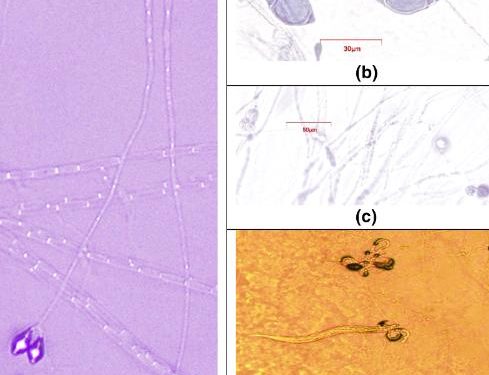Root-knot nematodes, particularly, Meloidogyne incognita, are among the most destructive endoparasitic nematodes, infecting a diverse range of plant hosts. Nematode-trapping fungi are known for their potential application as biological control agents against plant parasitic nematodes. In the present study, the nematode-trapping fungus Arthrobotrys thaumasia was isolated from the rhizosphere soil of tomato plants in the West Mediterranean Region of Türkiye. Two hundred and twenty-three tomato plant rhizosphere soil samples yielded six nematode-trapping fungal isolates, giving an occurrence frequency of 2.69%. Using morphology and molecular marker sequences (ITS and β-tubulin loci), the species of the fungi was confirmed to be A. thaumasia. In vitro, A. thaumasia reduced second-stage juveniles of M. incognita by 77.5% (isolate I-Y4-2) and 72.5% (isolate B-G5-1). This is the first report on the isolation and characterization of the nematode-trapping fungus A. thaumasia from Türkiye. Two isolates of A. thaumasia (I-Y4-2 and B-G5-1) appear to be promising biological control agents that may be utilized for controlling M. incognita-caused root-knot diseases.
Reference: , , , , , & (2024). First report of the nematode-trapping fungus Arthrobotrys thaumasia in Türkiye and its biocontrol potential against Meloidogyne incognita. Journal of Phytopathology, 172, e13354. https://doi.org/10.1111/jph.13354












